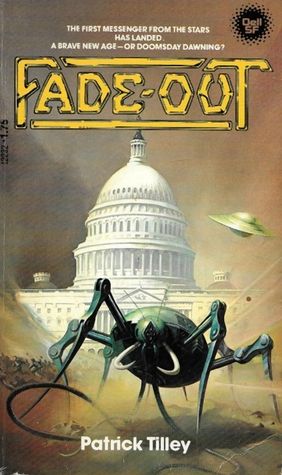

#Books about alien invasion skin
This xenosphere connects anyone with microscopic fungal-styled alien xenoforms growing on their skin - since everyone has xenoforms, Kaaro can access anyone within range. Known as a “sensitive,” Kaaro is capable of accessing people’s emotions, thoughts, and memories via an alien-seeded living informational network called the xenosphere. We experience the story of Rosewater from the perspective of Kaaro, the narrator and protagonist. As a Nommo Award–winning novel, Rosewater points to a key moment in the history of African science fiction, and it positions Thompson’s name among several notable 21st-century genre-shifting authors. The establishment of an African literary award specifically for - and to encourage - African speculative writers is glorious.

#Books about alien invasion how to
Since 2000, the science fiction community has increasingly turned attention toward the diverse offerings of writers around the world (including Nalo Hopkinson, Nnedi Okorafor, Liu Cixin, and Lauren Beukes), learning how to celebrate long-overdue stories and storytellers. The Nommo Awards are African literary awards for speculative works by African authors, an award structure emblematic of a particular literary moment. It is not surprising that the African Speculative Fiction Society took notice of such a work: when it debuted in 2017, Rosewater won their inaugural Nommo Award for Best Novel.ĭon’t haze through that last sentence. The novel is also a near-future science fiction story with strong overlays of detective mystery. His writing pushes the tensile strength of genres: Rosewater is an alien invasion novel that begins with the invading already well underway, like Octavia E. Tade Thompson is a devoted genre writer whose work spans the realm of speculative fiction: his accomplishments include a Rosewater-adjacent ghost story, “Slip Road” (2009) an alternative-history crime novel, Making Wolf (2015) a superhero novella, The Last Pantheon, written with Nick Wood for AfroSFv2 (2015) and the horror novella The Murders of Molly Southbourne (2017). I urge you to throw your hands up and enjoy the ride.įor readers unfamiliar with the recent outpouring of global science fiction, the first necessary reorientation might be that Rosewater is not only the beginning of a new trilogy, it is also already a literary landmark. But at a certain point in the book, you may find yourself dramatically reassessing those assumptions while spinning backward and cringing with horror-tinged delight. If you add them up, you’ll have a relatively good sense of what reading Thompson’s first novel in the Wormwood Trilogy is like. So when I tell you that Rosewater is a science fiction mystery that is simultaneously about an alien invasion and a man trying to avoid being murdered, I do so knowing that each of those elements may conjure familiar generic conventions. By the fifth rotation, I decided that what the ride actually was, though unexpected, was far better than the ride I had anticipated.

And then my roommate rocked our car entirely backward into a dedicated independent full-spin of at least six rotations.Ībout the third time around, I realized that I hadn’t actually known what the heck I was getting into. My roommate and I climbed aboard our car, were locked into the harness by the attendant, and joked as the wheel began to lift and slowly rotate. Tilting, hoisting, and rotating were all ride mechanics I’d experienced before - easily managed. At least two stories tall, painted orange and fuchsia, the new ride was a gyroscopic wheel made up of two-seater cars that could tilt independently forward and back as the whole wheel lifted and hinged at an angle. There was a new ride towering over the beloved, but outgrown, kiddie-sized swings. One summer, I went to the beach boardwalk with my college roommate. WHEN FINISHING Tade Thompson’s Rosewater, I had a visceral flashback.


 0 kommentar(er)
0 kommentar(er)
